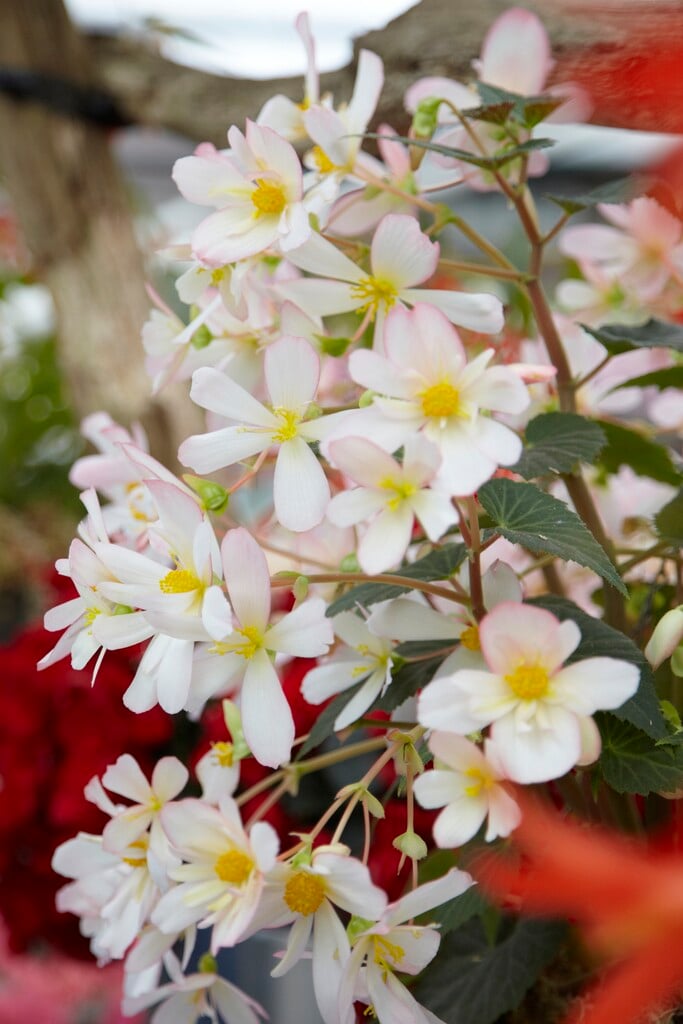Begonia 'Clara' (R)
begonia 'Clara'
A rhizomatous tender, evergreen perennial usually grown as a houseplant with glossy green leaves, to a height of up to 30cm. The white flowers are often borne throughout the year indoors and in summer and autumn when grown outdoors as an annual

Size
Ultimate height
0.1–0.5 metresTime to ultimate height
1 yearUltimate spread
0.1–0.5 metresGrowing conditions
Moisture
Moist but well–drainedpH
Acid, NeutralColour & scent
| Stem | Flower | Foliage | Fruit | |
| Spring | White | Green | ||
|---|---|---|---|---|
| Summer | White | Green | ||
| Autumn | White | Green | ||
| Winter | White | Green |
Position
- Partial shade
Aspect
East–facing or North–facing or West–facing
Exposure
Sheltered Hardiness
H1BBotanical details
- Family
- Begoniaceae
- Native to GB / Ireland
- No
- Foliage
- Evergreen
- Habit
- Bushy
- Potentially harmful
- Ornamental bulbs - not to be eaten. Wear gloves and other protective equipment when handling. Pets: Ornamental bulbs - not to be eaten - see the HTA guide to potentially harmful plants for further information and useful contact numbers
- Genus
Begonia can be annuals, evergreen or deciduous perennials or shrubs, with fibrous, tuberous or rhizomatous roots and usually asymmetrical leaves, often strikingly patterned, and small or large flowers, both male and female in the same cluster
- Name status
Unresolved
- Horticultural Group
- Rex begonias are evergreen, rhizomatous perennials grown for their handsome, brightly coloured leaves, rather than the small pale pink or white flowers which may appear in spring, summer or autumn
How to grow
Cultivation
Grow as a houseplant in a minimum temperature of 10°C. Prefers part shade, or bright shade, but no direct sunlight. For more advice, see Begonias: houseplants. Can also be grown as a patio plant or in borders as an annual.
Propagation
Propagate by seed in early spring in 21°C or propagate by softwood cuttings
Suggested planting locations and garden types
- City and courtyard gardens
- Patio and container plants
- Sub-tropical
- Cottage and informal garden
- Conservatory and greenhouse
- Flower borders and beds
- Garden edging
Pruning
No pruning required
Pests
May be susceptible to caterpillars, mealy bugs, mites, glasshouse thrips, vine weevil and aphids
Diseases
May be susceptible to grey moulds, powdery mildews, stem rot and rhizome rot
Get involved
The RHS is the UK’s gardening charity, helping people and plants to grow - nurturing a healthier, happier world, one person and one plant at a time.